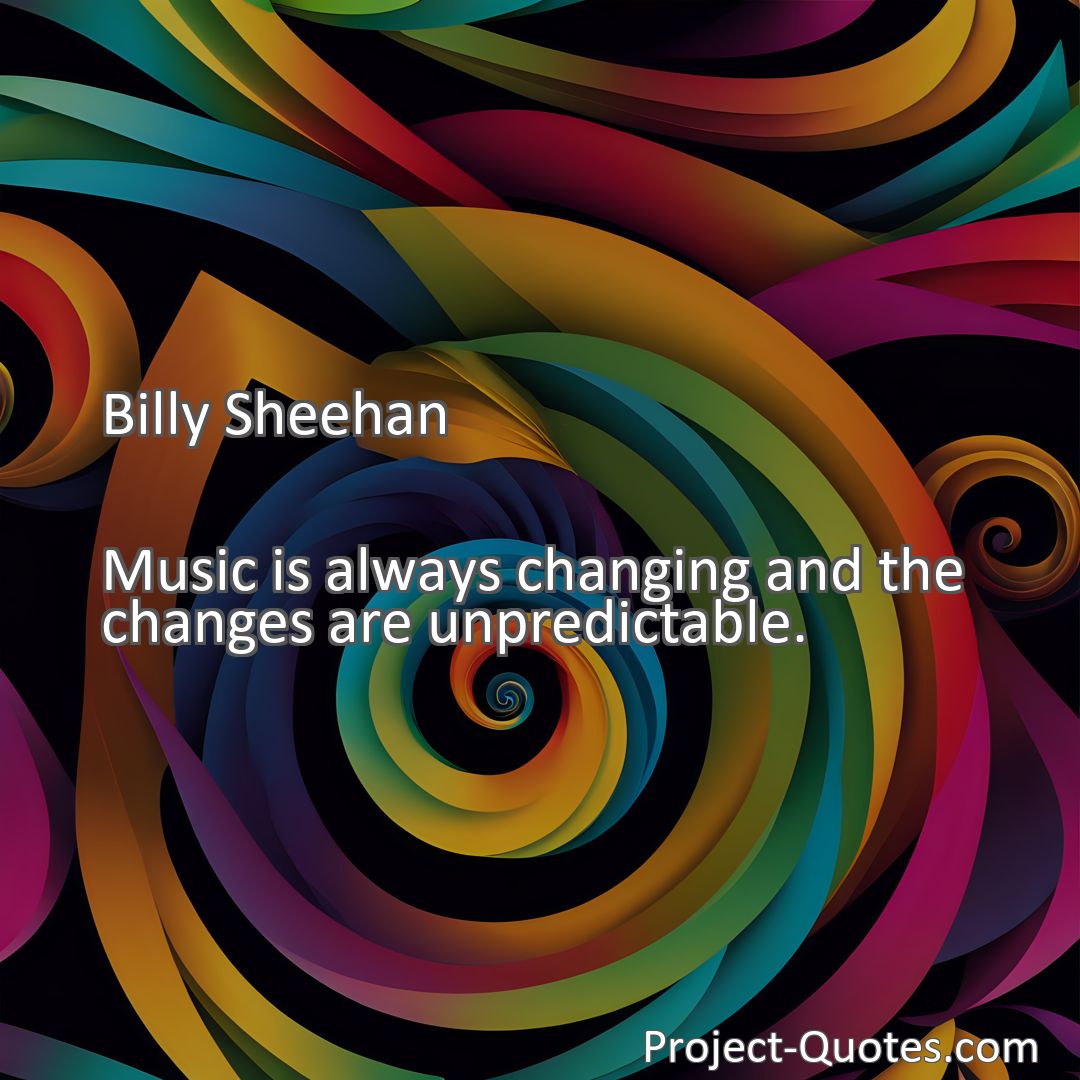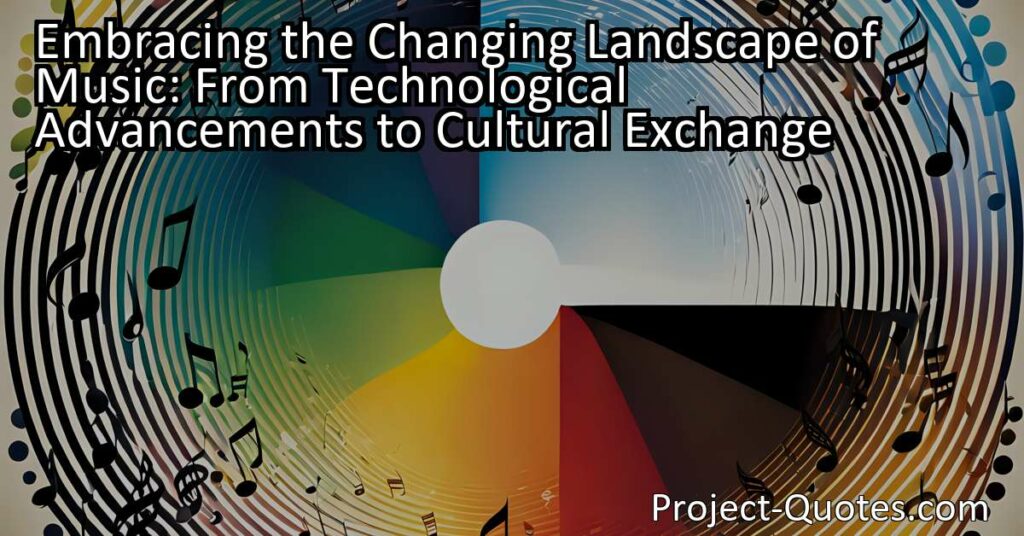Music is always changing and the changes are unpredictable.
Billy Sheehan
Music, a universal language that connects people and reflects the times, continues to evolve and adapt to new trends, technologies, and cultural influences. Technological advancements drive changes in music, resulting in new genres and innovative approaches to music-making. Social and cultural shifts also play a significant role in the evolution of music, creating genres that address important social issues and showcasing the blending of musical elements through cultural exchange. Embracing these changes allows both artists and listeners to explore new sounds and deepen their appreciation for the ever-evolving art form.
Table of Contents
Meaning of Quote – Music is always changing and the changes are unpredictable.
The Ever-Evolving World of Music: Embracing the Unpredictable Changes
Introduction :
Music, a universal language that transcends boundaries, has always been known for its ability to evoke emotions, connect people, and reflect the times. Throughout history, it has continuously evolved, adapting to new trends, technologies, and cultural influences. As the renowned musician Billy Sheehan once said, “Music is always changing and the changes are unpredictable.” In this article, we will delve into the captivating realm of music, exploring how it evolves, the factors that drive its transformations, and the impact these changes have on artists and listeners alike.
The Nature of Music’s Evolution :
Music is a dynamic art form that reflects the diverse perspectives and experiences of humanity. Throughout centuries, genres such as classical, jazz, blues, rock, hip-hop, and pop have emerged, each with its unique style and sound. One key aspect of music’s evolution is its ability to adapt and integrate various influences, leading to the birth of new genres. The unpredictable nature of these changes often stems from a combination of technological advancements, social shifts, and cultural exchange.
Technological Advancements: A Catalyst for Change :
One of the driving forces behind the ever-changing landscape of music is technology. Advancements in recording techniques, instruments, and production tools have revolutionized the way music is created and consumed. From the invention of the phonograph in the late 19th century to the rise of digital music platforms in the 21st century, technology has played a crucial role in expanding the possibilities for both artists and listeners.
In recent years, developments in music software, sampling techniques, and electronic instruments have brought forth new genres such as EDM and synth-pop. These genres showcase the capability of technology to shape the sonic landscape, leading to fresh sounds and innovative approaches to music-making. Similarly, the advent of streaming services has dramatically transformed the way we discover and experience music.
The Influence of Social and Cultural Shifts :
Music has always been intertwined with the social and cultural fabric of society. It both reflects and shapes the desires, struggles, and aspirations of people, making it a powerful medium for self-expression and communication. As society undergoes changes, so does its music.
For example, the emergence of rock ‘n’ roll in the 1950s was a direct response to the changing social dynamics of that time. It represented rebellion, individualism, and a challenge to the established norms. Likewise, the rise of hip-hop in the 1970s and 1980s gave a voice to marginalized communities and became a means of addressing important social issues.
Moreover, cultural exchange plays a significant role in the evolution of music. As different cultures interact through migration and globalization, musical elements are shared and blended, resulting in exciting fusions like Afrobeat, reggaeton, and world music. The unpredictable nature of cultural exchange often leads to innovative collaborations and transformative genres that capture the essence of multiculturalism.
Impact on Artists and Listeners :
The ever-changing nature of music has profound effects on both the artists who create it and the listeners who consume it. For artists, the unpredictable shifts in music trends present both challenges and opportunities. On one hand, as genres evolve, artists may face pressure to adapt to new styles or risk becoming irrelevant. On the other hand, the changing landscape also offers space for experimentation, leading to the creation of groundbreaking music that pushes boundaries.
For listeners, the dynamic nature of music ensures an ever-fresh listening experience. New genres and artistic directions constantly emerge, providing a diverse range of musical choices. The unpredictability of these changes ignites curiosity, facilitating exploration of new sounds, and expanding one’s musical tastes.
The Conclusion :
In conclusion, Billy Sheehan’s quote, “Music is always changing and the changes are unpredictable,” encapsulates the essence of an ever-evolving art form. Music’s transformative nature stems from a combination of technological advancements, social shifts, and cultural exchange. As both artists and listeners, embracing these changes allows us to witness the birth of innovative genres, engage in cultural exchange, and deepen our appreciation for the universal language that is music.
I hope this quote inspired image brings you hope and peace. Share it with someone who needs it today!


